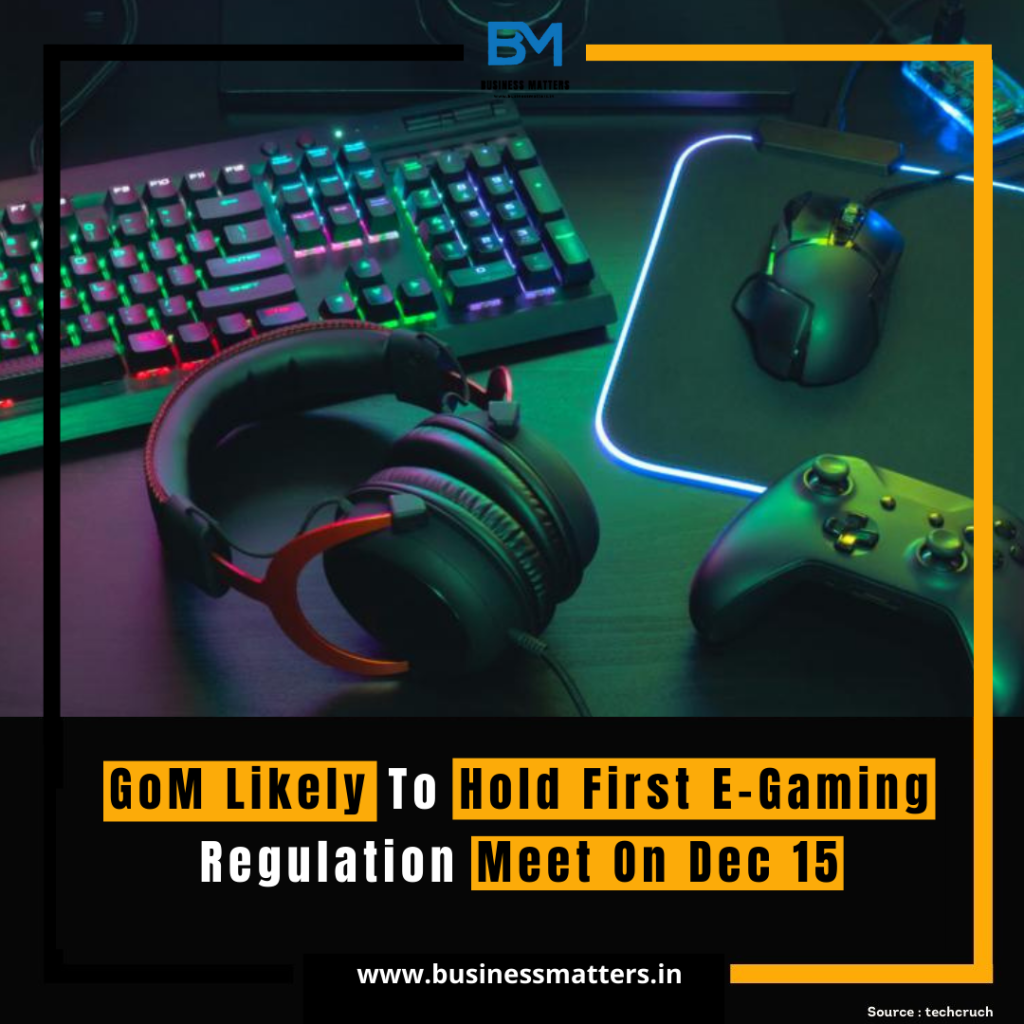In a significant development reflecting the growing prominence of the electronic gaming (e-gaming) industry, a Group of Ministers (GoM) is set to convene its first meeting on December 15 to discuss and potentially formulate regulations for the e-gaming sector. This move comes at a time when the e-gaming industry is witnessing rapid growth, and regulatory frameworks are becoming essential to address various aspects, including consumer protection and responsible gaming.
The GoM, comprising key officials and stakeholders, is expected to deliberate on a range of topics related to e-gaming, including licensing, age restrictions, advertising guidelines, and measures to ensure fair play. The meeting is likely to be a crucial step in defining the regulatory landscape for the e-gaming sector, which has seen a surge in popularity, especially among the youth.
One of the key areas of discussion is expected to be the licensing framework for e-gaming operators. Establishing a clear and transparent licensing process is crucial for ensuring the integrity of the industry and protecting consumers. A well-defined licensing structure can also serve to prevent illegal or unregulated operators from entering the market.
Age restrictions are another critical aspect that the GoM is likely to address. Given that e-gaming involves financial transactions and may contain content unsuitable for certain age groups, determining age-appropriate access and participation becomes imperative. The discussion may involve mechanisms to verify the age of players and restrict access to minors.
Advertising guidelines for e-gaming platforms are anticipated to be on the agenda as well. The rapid growth of the industry has led to increased marketing and promotional activities, raising concerns about responsible advertising practices. The GoM may explore ways to ensure that advertisements are transparent, avoid misleading information, and adhere to ethical standards.
Responsible gaming measures are expected to be a focal point of the discussions. With the potential for addictive behavior associated with gaming, the GoM may consider incorporating features that promote responsible gaming, such as setting limits on spending, time restrictions, and providing information on the potential risks associated with excessive gaming.
The meeting also comes in the wake of the increasing convergence of gaming and gambling, particularly with the rise of online betting and real-money gaming. The GoM may deliberate on the distinction between skill-based gaming and games of chance, aiming to establish clear guidelines and regulations to address concerns related to gambling in the e-gaming space.
The outcome of the GoM meeting is eagerly awaited by industry stakeholders, including e-gaming operators, consumers, and regulatory bodies. A well-crafted regulatory framework can provide a stable and secure environment for the industry to flourish while safeguarding the interests of players and addressing societal concerns.
The e-gaming sector has become a significant contributor to the digital entertainment ecosystem, attracting investment and creating employment opportunities. Regulatory measures can contribute to the industry’s sustainable growth by instilling confidence among players, investors, and the general public.
In conclusion, the GoM’s first meeting on e-gaming regulation on December 15 is a pivotal moment in shaping the future of the electronic gaming industry in the country. As the sector continues to evolve, a comprehensive and forward-looking regulatory framework can provide the necessary foundation for responsible and inclusive growth, ensuring that the e-gaming experience remains enjoyable, fair, and secure for all participants.


